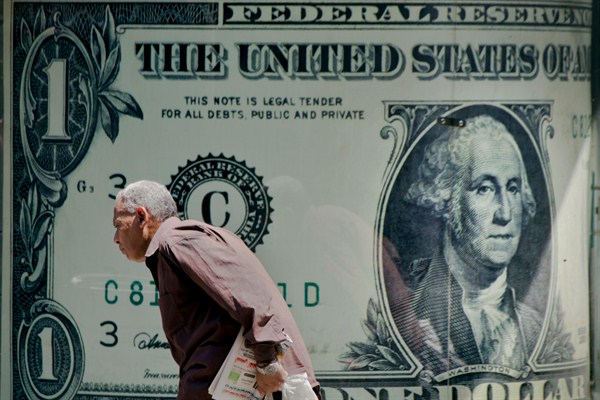It didn’t come as much of a surprise to most observers when, at a press conference on the sidelines of a BRICS summit in July 2018, Russian President Vladimir Putin took a moment to criticize the United States’ decision a few months before to further tighten financial sanctions on Moscow. Putin explained that the move, which came in retaliation for Russia’s interference in the 2016 U.S. presidential election, was “a big strategic mistake,” because it “undermines confidence in the dollar.” Later that summer, Russian Foreign Minister Sergey Lavrov echoed his boss, insinuating that Washington’s increasing use of financial sanctions would hasten “the weakening and demise” of the dollar as a global reserve currency.
Some observers in the U.S. may be tempted to dismiss the Russian claims as mere wishful thinking. After all, Russia is a relatively weak power compared to the United States, frustrated with Washington’s capacity to use its economic dominance as a coercive tool. With no meaningful way to strike back, the Kremlin has no choice but to resort to fantastical assertions about how the flexing of American financial muscle will, paradoxically, lead to its atrophy.
The Russians may very well be engaged in wishful thinking. But it would be a mistake to dismiss out of hand the potential link between U.S. financial sanctions and a politically driven international shift away from the dollar. In fact, such concerns already exist among the upper echelons of the U.S. policymaking community.

